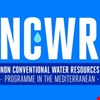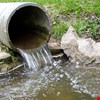


In the run-up to the World Water Day 2016, let’s become ambassadors for change. Let’s address water scarcity utilizing options beyond the conventional!

Since December 2015, Global Water Partnership in Central and Eastern Europe develops a project proposal that aims to shift existing water paradigm by an innovative wastewater management in the rural areas.

Innovative wastewater management in rural areas in Central and Eastern Europe
Global Water Partnership has interviewed women in the water community across the Network on their journey to become successful in their professions, how to overcome obstacles they face as women, and also recommendations to other women.

The 2nd Regional Alumni Workshop of the ‘Water Integrity Capacity Building Programme for the MENA Region’ was organised by GWP-Med (8-11 February 2016, Dead Sea, Jordan). Regional alumni workshops aim to lead to the creation of a regional community of practice on water integrity and foster water integrity ambassadors, reinforcing the enabling environment and building synergies in the target countries and the MENA Region at large. The first Regional Alumni Workshop (November 2015, Tunis, Tunisia) targeted alumni from the national civil society workshops, whereas this second one targeted operational/mid-level management staff.

More than 80 Members of Parliaments (MPs), journalists, country administrators, intergovernmental organisations, NGOs, and private partners from 16 countries contributed to a regional workshop dedicated to climate change adaptation in coastal areas of the Mediterranean (5-6 November 2015, Athens).

Securing continuous political support for enhanced ownership, wide outreach and impact, is among the horizontal objectives of the regional project "Capacity Building Programme on Water Integrity in the Middle East and North Africa"[1]. This SIWI-led, Sida-supported, UfM-labelled programme where GWP-Med is a core regional partner, aims to develop capacities of targeted water stakeholder groups at different governance levels to improve transparency, accountability and participatory practices in water management in the MENA region. Jordan, Lebanon, Morocco, Palestine and Tunisia are the focus countries of this work.

The MedPartnership and ClimVar projects held their final meeting on 3-4 November 2015 in Athens, Greece to showcase the results achieved through the activities and demonstration projects implemented over the past five years or so aiming to address the main environmental challenges that Mediterranean marine and coastal ecosystems face.

GWP-Med provides technical assistance to the UfM secretariat that coordinates/supports the drafting procedure of a roadmap and associated work plan for the work of the WEG.

Sustainable Water Integrated Management – Support Mechanism (SWIM-SM), the largest water-related regional project supported by the European Commission (EC) during 2010-2015, successfully concluded its phase I, and held its Final Steering Committee (SC) Meeting in Luxembourg, on the 25th of November. With a budget of 7.7 million Euros, the project was implemented in nine south Mediterranean countries[1] by a consortium led by LDK and with GWP-Med as the project technical director.